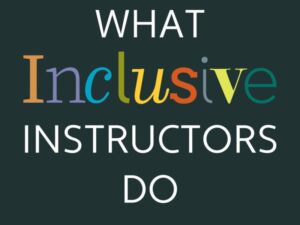
We’ve reached that point in the semester – student presentations. For many students, this can be daunting. Help build student confidence with some low-stakes presentations, as explained in this short Faculty Focus article. Want more resources on presentations? Check out this Guide to Effective Presentations from the Learning Scientist.
Are you using groups this semester? How are they going?








